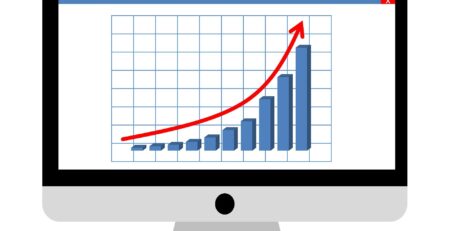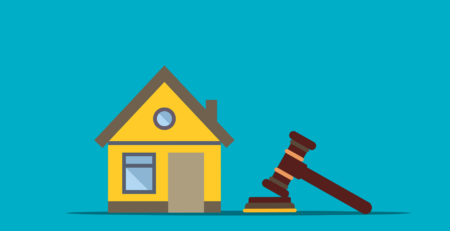Assessing the Merits of Early Mortgage Repayment
The idea of paying off a mortgage early is appealing to many. Being free from monthly payments and interest obligations can provide an enormous sense of relief and financial freedom. However, while the allure of drastically reducing your interest payments and shortening your mortgage term is strong, this decision needs careful consideration. What works for one homeowner may not be suitable for another.
Before making the leap, it’s wise to reflect on several critical questions that can guide your decision-making process. This article aims to provide a detailed analysis to help you understand whether paying off your mortgage early aligns with your financial goals and circumstances.
Understanding Your Current Financial Landscape
To effectively assess whether you should pay your mortgage off early, start by taking stock of your overall financial situation. Have you established a reliable income source, and do you have manageable living expenses? These factors are essential in determining your capacity to make extra repayments on your mortgage.
First, consider your savings. Having an emergency fund is critical for any homeowner. Ideally, this fund should cover three to six months’ worth of living expenses. This reserve acts as a safety net for unforeseen circumstances, such as sudden job losses or significant home repairs. Not having this cushion can expose you to financial risks, so be sure you have adequate savings before deciding to channel extra funds toward your mortgage.
Next, evaluate your expenses. Make a comprehensive list of your monthly expenditures to understand where your money goes. This exercise helps you identify any potential savings and gives you insight into the flexibility you have with your budget. If you find that you’re living paycheck to paycheck, it may be wise to reconsider any plans to make additional mortgage payments.
Examining Mortgage Conditions and Terms
One of the first questions you should ask is whether your mortgage permits overpayments. Generally, most lenders will allow for extra payments, but if you’re currently tied into a fixed-rate mortgage, you may face penalties for early repayment. These penalties vary by lender and can significantly impact your overall savings if you move forward with an overpayment strategy.
Typically, many mortgages permit you to overpay by a certain percentage of your outstanding balance—usually around 10%. However, this may not always be the case, so confirm your specific terms with your lender. If you are near the end of your introductory deal or beyond the fixed term, you will likely have more flexibility to pay off larger sums without incurring fees.
Once you know the costs involved with early repayment, you should also closely monitor your mortgage interest rate. Understanding your current mortgage rate is vital as it allows you to assess whether overpaying is worthwhile. If your mortgage rate is relatively low compared to potential returns from investments, overpaying might not be the best choice.

Debt Management: Prioritising Your Obligations
When contemplating whether to increase your mortgage payments, it is equally crucial to consider your other debts. The general rule of thumb is to pay off the highest-interest debts first. This often includes credit card balances, personal loans, or high-interest car loans. Paying down these debts will save you more in the long run, as their interest rates can far exceed your mortgage rate.
Take the time to evaluate the interest rates on all your debts. If they are higher than your mortgage rate, it is sensible to prioritise clearing those before considering additional mortgage overpayments. Doing so can alleviate financial pressure and provide you with greater flexibility.
Exploring Investment Avenues Versus Mortgage Repayment
If you find yourself in a position with manageable debt and a solid emergency fund, your next consideration should be how you might best utilise any extra funds. While it’s easy to assume that paying off your mortgage early is the best use of your money, it’s essential to consider the potential of other financial avenues.
A significant aspect to reflect upon is whether saving money might yield better returns than the savings from mortgage overpayments. Different types of savings accounts come with varying interest rates, so carefully research your options. If you have access to a savings account with a higher interest rate than your mortgage, it could make more financial sense to save rather than pay down the mortgage.
Additionally, consider alternative investment opportunities. Real estate, stocks, or other investment vehicles offer the chance to potentially grow your wealth. Remember that investments carry inherent risks, so it’s crucial to educate yourself and seek professional advice if necessary. While the prospect of putting money toward your mortgage may seem secure and stable, there could be a greater financial upside to diversifying your investments.
One should also consider any available tax-free savings options that can provide additional benefits. These accounts often allow for tax deductions on interest earned, making them a more lucrative option if structured correctly.
The Balance Between Risk and Stability
Finally, consider the stability of your income when deciding whether to pay off your mortgage early. The security of your job or income source significantly influences your financial decisions. Are you self-employed, or does your income fluctuate? If so, it is crucial to assess the stability of your earnings thoroughly.
Begin by analysing your average income over the past year. Understand your cash flow and whether you might face any potential changes in your employment status. Can you foresee any challenges, such as redundancies at work or business slowdowns? This strategic foresight can help you make informed decisions. Without a stable income, prioritising building a cushion through savings rather than paying off your mortgage may be more prudent.
Moreover, if you are considering staying in your home for the long term, being mortgage-free might sound highly appealing. However, if you are contemplating future moves, such as relocating for work or upsizing, paying off your mortgage might not align with your long-term plans, especially if you face additional costs associated with a new property.
Conclusion
In summary, the decision to pay off your mortgage early necessitates thoughtful consideration of several factors. As tempting as it may be to eliminate this longstanding debt, it is crucial to ask yourself a series of questions that lead to a better understanding of your unique financial landscape.
First, evaluate your overall financial stability. Ensure you have an emergency fund sufficient to support you in times of unpredictability. Next, closely examine your mortgage conditions, particularly any penalties associated with early repayment, and understand your interest rate in the context of other debts you may have.
Remember to prioritise high-interest debts first; paying these off will provide more savings potential. Once these factors are understood, explore your investment options. Determine if your funds could serve you better by investing rather than paying down your mortgage, particularly through avenues that yield higher returns than your mortgage interest rate.
Lastly, assess how stable your income is. If you lack financial security, it may influence your decision significantly. Being mortgage-free has emotional and financial appeal, but the impact of this decision should be weighed against present and future financial goals.
Ultimately, consider seeking advice from a financial advisor familiar with UK market conditions. They can provide tailored guidance suiting your financial situation. By taking a measured approach and asking the right questions, you can navigate the decision to pay off your mortgage in a way that best supports your long-term aspirations, ensuring that you don’t just make a sound financial move today, but also lay the groundwork for a secure tomorrow.
ARE YOU READY TO START INVESTING?
Subscribe to our mailing list now for exclusive deals, investment guides and the latest information from the property market.







